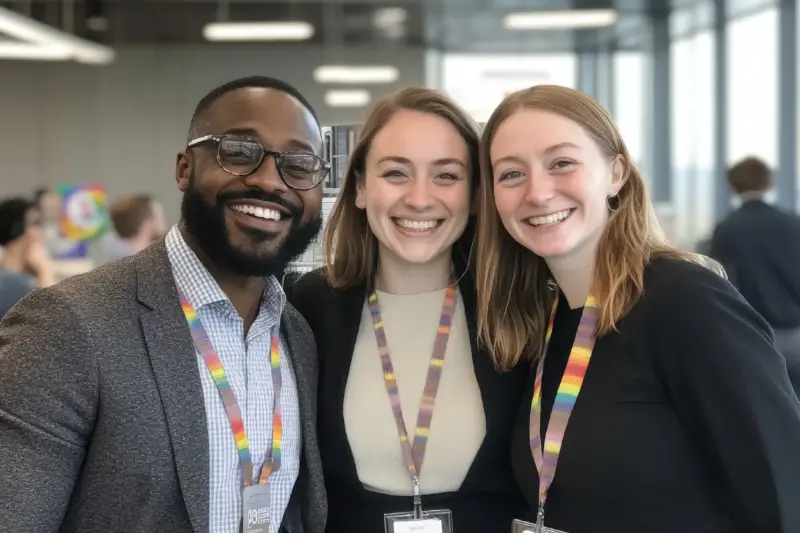
As the world journeys deeper into the twenty-first century, a remarkable shift is taking place in how we connect with each other. In 2025, the concept of belonging has evolved well beyond traditional boundaries and familiar faces. Communities are taking center stage, not just as geographical locations but as vibrant ecosystems defined by shared interests, values, and goals. Understanding the latest trends and facts about community-centered culture reveals both the challenges and profound rewards of finding your place in a rapidly changing world.
The Rise Of Intentional Communities
The landscape of community in 2025 looks vastly different from decades past. With rapid advances in technology, people are no longer tethered to their hometowns. Instead, intentional communities—groups formed around shared passions or beliefs—are flourishing both online and offline. From digital forums to co-housing networks, these intentional gatherings offer support, friendship, and belonging.
What's fascinating is how these communities often transcend traditional categories like nationality or occupation. For example, hobby-driven groups, such as those centered around urban gardening or sustainable living, are uniting people from different continents. Meanwhile, remote work has catalyzed the emergence of “digital nomad villages” in places like Portugal, Thailand, and Costa Rica, where individuals live and collaborate together—not just as colleagues, but as neighbors and friends.
Technology As A Bridge, Not A Barrier
While technology often gets blamed for social isolation, in 2025 it is more often serving as a bridge than a barrier. Mobile apps and social platforms are not just about likes and shares—they are powerful tools for building meaningful relationships. For instance, new platforms like Geneva and Discord have evolved into virtual “town squares,” hosting everything from book clubs to language exchanges.
Artificial intelligence is also playing a surprising role in fostering community. AI-powered recommendation engines suggest communities and events tailored to users’ interests, making it easier than ever to find your tribe. And with the rise of the metaverse, people are creating entirely new cultural experiences—like virtual music festivals or immersive art galleries—that are open and inclusive, allowing for new forms of creative expression and social connection.
Breaking Down Barriers To Inclusion
A key aspect of community-centered culture in 2025 is the emphasis on inclusion. No longer is belonging a privilege reserved for the few; there are growing movements worldwide to ensure that everyone—regardless of background, ability, or identity—can find a place to call home.
Cities are redesigning public spaces to be more accessible, while community hub initiatives invite input from marginalized voices. Grassroots organizations are leading the way, ensuring that young people, immigrants, and the LGBTQ+ community have a seat at the table. In education, “belonging curriculums” are helping students understand the value of empathy and collaboration, teaching skills that go beyond the classroom and into daily life.
This focus on inclusion isn’t just altruistic—it pays dividends in wellbeing. Studies reveal that individuals who feel a strong sense of community have better mental health, higher productivity, and greater resilience in the face of adversity. It’s no wonder that companies are adopting “belonging” as a key workplace value, promoting diverse teams and encouraging authentic communication.

Traditions Reimagined For A New Era
One of the most beautiful elements of community-centered culture in 2025 is how old traditions are being reimagined. Rather than abandoning customs, people are blending them with new influences to create experiences that resonate with modern values. Family-style dinners are no longer just for relatives—friends and neighbors are organizing regular potlucks, bringing together culinary traditions from around the globe.
Festivals, too, are being transformed. Hybrid events allow for both physical and virtual participation, resulting in more inclusive celebrations. The globally streamed Lunar New Year parade or the virtual Pride marches unite millions, regardless of geography. Through these shared moments, people craft new rituals, reinforcing that the power of belonging thrives when we honor both our roots and our collective future.
The Future Of Belonging: What’s Next?
Looking ahead, experts suggest that community-centered culture will continue to grow in both importance and creativity. As challenges like climate change and migration shape our world, communities will become crucial spaces for problem-solving and mutual support. Expect to see even more innovative approaches, from “skill-sharing networks” where neighbors trade talents, to urban farms that double as gathering spaces for discussion and art.
Perhaps most inspiring is that the search for belonging isn’t about uniformity, but about celebrating diversity. In 2025, the strongest communities are not those where everyone is the same, but where differences are recognized, respected, and woven into a richer social fabric.
As we navigate this new era together, the sense of belonging emerges as one of our most valuable resources—offering comfort, inspiration, and the joyful reminder that, wherever you are, you can find or help create a community where everyone truly belongs.
